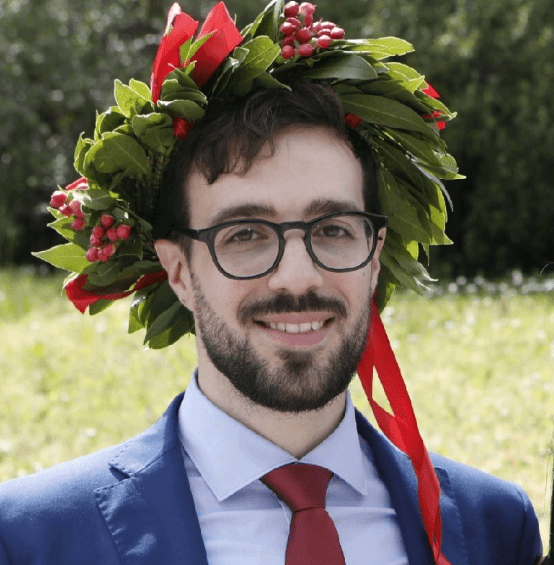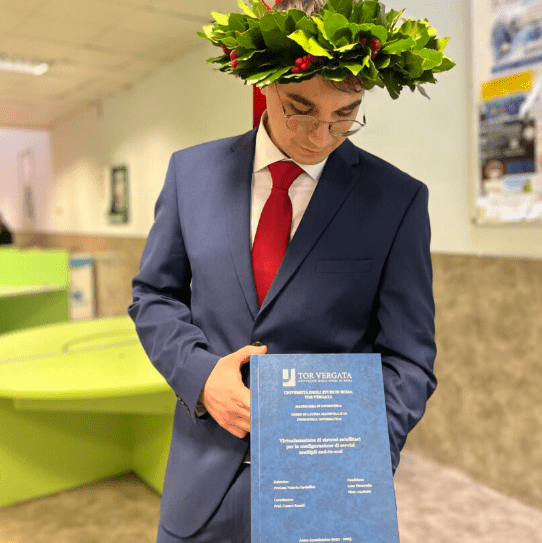
Domenico Verde’s thesis, submitted for the completion of a master’s degree in computer engineering in March 2023, focuses on 5G, which stands as the latest innovation in cellular mobile networks.
Read more on https://romars.tech/en/thesis/domenico-verde-2023/

Valeria Mascetti’s thesis, completed by the graduate on February 20, 2024, in Communication Sciences, is rooted in a preliminary observation preceding the start of a case study whose main objective was to enhance the social media visibility of a SME in the ICT sector: Romars S.r.l.
Read more on https://romars.tech/en/thesis/valeria-mascetti-2024/

Satellite networks represent a fundamental component of global communication infrastructures, providing connectivity in remote, inaccessible, or poorly covered areas by terrestrial infrastructure: this is the topic addressed by Luca Fiscariello’s thesis.
Read more on https://romars.tech/en/thesis/luca-fiscariello-2024/

The thesis activity involves the study of Software Defined Networking and the application of different tools (including Mininet, Open vSwitch, Prometheus, Python language, etc.) for emulating and monitoring an environment dynamically created according to user specifications. Such an environment will consist of two application nodes connected through two gateways, which communicate using some links with different characteristics and are dynamically interchangeable with each other.
the thesis is in progress.

The main purpose of the thesis work is to conduct a critical and in-depth study of the routing algorithms adopted by LEO satellite constellations. In particular, the focus is on finding conventional standards or approaches that are applied in real constellations and that govern the flow of data exchanged by satellites through Inter Satellite Link(ISL). The work not only clarifies these aspects, but also aims to offer a methodology and a set of tools useful for recreating a LEO constellation in an emulated environment in order to conduct test experiments and analysis.
the thesis is in progress.
